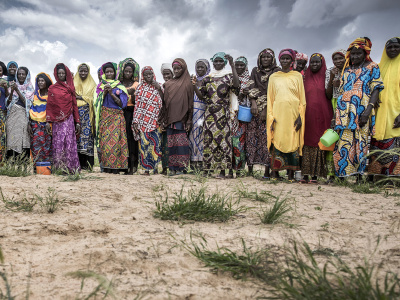Emerging economies have been playing an increasing role in the global arena, and have thus justifiably attracted an increasing level of attention. This is also the case for their role in Africa. Moving beyond stereotypes and pre-conceived perceptions has however proved quite challenging. China, as the dominant new actor in Africa, has been the focus of much of the talks. China, the lead single exporting country to Africa, accounted in 2013 for 18% of African imports, which is double the level of 2008 and three times more than a decade ago. China’s stock of investment in Africa more than doubled from 2009 to 2012, with the bulk of Chinese loans going to infrastructure development. Over 2000 Chinese companies operate across 50 African countries (as stated in Standard Bank reports in 2014). China is not alone. India, Brazil, and to a lesser extent Russia (as part of the BRIC), have also increased their involvement in Africa, as have other countries such as Indonesia, Saudi Arabia, Thailand and Turkey, to mention a few. Yet, getting a clear picture of China’s and other emerging players’ involvement in Africa is not easy. Data are sparse, incomplete, and often interpreted to fit ones argument, rather than to enlighten understanding of a rapidly evolving reality. The involvement and influence of these new actors is a complex, multi-faceted phenomenon. Beyond trade and investment, it is the way of engaging and priorities that may differ. Much talk has been made of the South-South cooperation, as opposed to the more traditional North-South model. In this context, exchange of experiences and approaches to development have a lot of potential to further contribute to Africa’s development. But many of the arguments about emerging players in Africa are over simplistic. First, the rivalry between traditional and new partners to Africa is often overstated. The EU remains a key partner, as re-emphasised during the 4th is worth noting for instance that, in 2012, trade between the European Union and Africa has grown faster (about 10%) on a year-on-year basis than between the BRICS and Africa (below 4%). The question is less about whether emerging powers are better or worse than traditional ones for Africa, but rather how they can contribute, in their own way, to the transformation and sustainable development endeavours of Africa. Second, emerging economies are easily bundled into one group, in an abstract construct ignoring the vast differences - in terms of size, development, type of government, approaches, etc. - that exist between countries such as China, India, Brazil, Indonesia and Turkey for instance. Last, but not least, Africa is also diverse, and entails a number of emerging economies, or countries aspiring to such a status. Any proper assessment of the role of emerging partners on the African continent must take into account that diversity and zoom in on the concrete in-country realities of their engagement. It is with these considerations in mind that this issue of GREAT insights brings together a wide array of contributions on the multi-dimensions of role and influence of emerging global economies in Africa, including in relation to more traditional partners. We hope you find them interesting and welcome your comments and contributions. San Bilal is Head of the Economic Transformation Programme. This article was published in GREAT Insights Volume 3, Issue 4 (April 2014).
https://ecdpm.org/work/emerging-economies-and-africa-volume-3-issue-4-april-2014/editorial-emerging-economies-and-africa





